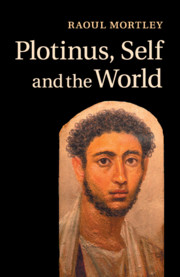Book contents
- Frontmatter
- Contents
- Preface
- Introduction
- 1 The individuated self and memory
- 2 Memory and forgetting
- 3 Ignorance, love and play
- 4 Plotinus’ Eros
- 5 The self: ‘and we too are kings’
- 6 Being and having
- 7 Self-knowledge
- 8 Art and the seduction of beauty
- 9 Face, image and the self
- Conclusion
- Bibliography
- Index
- References
5 - The self: ‘and we too are kings’
Published online by Cambridge University Press: 05 October 2014
- Frontmatter
- Contents
- Preface
- Introduction
- 1 The individuated self and memory
- 2 Memory and forgetting
- 3 Ignorance, love and play
- 4 Plotinus’ Eros
- 5 The self: ‘and we too are kings’
- 6 Being and having
- 7 Self-knowledge
- 8 Art and the seduction of beauty
- 9 Face, image and the self
- Conclusion
- Bibliography
- Index
- References
Summary
These words, which are found at the beginning of V.3(49)4 of the Enneads, concern the self and the knowledge of the self. They are found in the course of a discussion on the idea of ‘ours’, of what belongs to us, of what is part of us. They should be read in conjunction with another well-known passage on the self (Enn. VI.4(22)14, 17) which asks the question: who are we, tines de hemeis?
What is ours? This appears to be a very important question in Plotinus, and we will investigate it here and in following chapters, particularly ‘Being and Having’. There can be things which are in us, or which we possess, or which belong to us: these things are ours. But what is ours can also be part of a relationship, or even of a vague or ill-defined connection: my friends, my ideas, my habits. This is the question put by Plotinus in V.3(49)3, 20 ff.: first, the question of what is ours, to hemeteron; and secondly, the most important question of all: is Intellect ‘ours’? Plotinus is investigating the question through a two-pronged series of discussions, dealing on the one hand with what is ours, what is possession, what is the relationship between the self and its contextual environment, and on the other with the supreme principle, the Intellect, and its connection with the beings which lie beneath it. Bertrand Ham, in his highly scholarly commentary, refers to the background in Plato's First Alcibiades, which we have discussed in Chapter 7, and rightly dwells on the differentiation between ‘us’ and ‘ours’, which is developed in the Socratic discussion.
- Type
- Chapter
- Information
- Plotinus, Self and the World , pp. 68 - 78Publisher: Cambridge University PressPrint publication year: 2013



